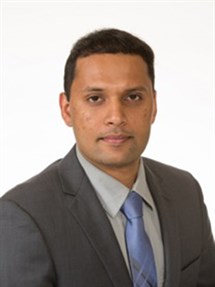

Dr. Malini Natarajarathinam and Dr. Mathew Kuttolamadom have been awarded a $284,985 grant from the National Science Foundation (NSF) to introduce a self-sustaining manufacturing and distribution program to students living in underserved Latino communities along the South Texas border.
Natarajarathinam and Kuttolamadom, professors in complementary programs within the Department of Engineering Technology & Distribution at Texas A&M University, are co-principal investigators for the initiative along with Dr. Sharon Lynn Chu from the College of Architecture at Texas A&M.
Dr. Francis Quek, professor in the Department of Visualization, is the principal investigator.
The funded proposal, “Making in The Colonias: Motivating STEM Participation through Making as Micro-Manufacture,” aims to teach area high school students how to manufacture and distribute instructional, hands-on science kits to elementary schools in their community, by being part of Making-Production Teams (MPT).
“There is a big movement to involve children in actually making things and learning by creating,” says Natarajarathinam, who teaches in the Industrial Distribution program within the department. “Kids are learning by putting things together hands-on, versus watching a video or reading about it in a book.
Expanding upon the successful project, “Making the Maker,” the initiative will introduce STEM principles so students can eventually help their communities independently and in a sustainable manner.
Currently, engineering technology and industrial distribution students are responsible for ordering, manufacturing and distributing the parts for the kits; the new project will bring high school students to Texas A&M so engineering technology and industrial distribution faculty can help impart knowledge and skills via summer training workshops.
Undergraduates will serve as distance mentors to high school students in the Colonias, who will implement manufacturing, supply chain management and industrial distribution principles in their hometown and provide science kits to local elementary school children.
“I will be creating the workshop parts and curriculum on the fabrication and manufacturing side – drilling, 3-D printing, putting things together – and [Natarajarathinam] will be taking care of the logistics, supply chain, industrial distribution side,” says Kuttolamadom from the Manufacturing and Mechanical Engineering Technology program in the department.
Classified as an Early-concept Grant for Exploratory Research (EAGER), the two-year endeavor is considered “high-risk, high reward” that will explore “untested but potentially transformative research ideas or approaches,” according to the NSF. If successful, the project could receive larger funding and be expanded on a state or even national scale.
This cutting-edge engineering education research is not rare in the department; faculty are continuously transforming the lives of students and communities at Texas A&M and beyond.